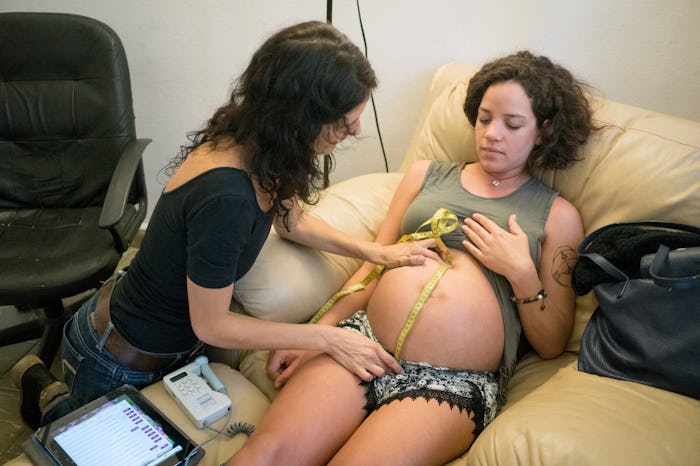Life

These Zika Virus 2018 Updates Are A Must-Read For Expectant Parents
The Zika virus may not be in the news as often as it was a few years ago, but that doesn't mean it's any less dangerous. Ever since the virus became an epidemic in 2015, and especially since pregnant women were warned not to travel to affected countries, the virus has continued to hold strong. Here are all the latest 2018 Zika virus updates.
For some brief background, Zika is a "disease caused by a virus that is primarily spread to people through the bite of an infected mosquito," as explained by the Centers for Disease Control and Prevention (CDC). Symptoms are typically mild and usually go away in about a week, and they include a fever with rash, joint pain, or red eyes. However, many people who have Zika do not have symptoms and therefore never even realize they have the disease. While the disease does not have severe effects on the average citizen, its effects can be detrimental for pregnant women and their fetuses.
Back in January 2016, the CDC issued a travel warning to United States residents who were pregnant or trying to get pregnant, because getting the Zika infection during pregnancy can cause your baby to have serious birth defects. The CDC recommended that expectant mothers avoid a number of countries where the virus was prevalent, including a variety of countries in Africa, Asia, the Caribbean, Central America, the Pacific Islands, and South America, as noted by the CDC. The only country in North America that pregnant women and couples trying to get pregnant currently need to avoid is Mexico.
Previously, several locations in the United States were deemed unsafe for pregnant women to travel to, including Miami-Dade County in Florida. In June 2017, the CDC lifted the warnings in the Miami area.
The CDC also notes that some locations that were previously unsafe are now all clear, including the Bahamas, the Cayman Islands, Cook Islands, Marshall Islands, Martinique, Saint Barthélemy, and Vanuatu.
In addition to avoiding affected areas, the CDC still recommends that those who live in affected areas take all possible precautions to avoid getting bitten by mosquitoes, including covering skin with long clothes, wearing insect repellent, and sleeping with mosquito nets.
In addition to being passed through mosquitoes, the Zika virus can also be passed through sex, meaning you should always use protection if you or your partner has traveled to an affected country in the last six months. And, of course, a pregnant woman can pass the Zika virus to her fetus, which can then cause microcephaly, explains the CDC. Microcephaly is a birth defect that affects the brain, causing babies to have smaller brains and heads than most other children their age. Babies with microcephaly can also experience developmental delay, seizures, intellectual disability, issues with movement and balance, various feeding issues, hearing loss, and eye defects.
Dr. Paul Mead, who studies the Zika virus and similarly-transmitted diseases for the CDC, told TIME last month that travelers should definitely still heed the CDC's guidelines, even though the Zika threat is lower.
Mead also co-authored a recent study — published in the New England Journal of Medicine and funded by the CDC — that investigated reports that the Zika virus could be sexually transmitted. The study used multiple semen and urine samples from more than 180 men, and researchers found that Zika did not persist in semen for as long as experts previously thought. Dr. Mead explained to TIME that the CDC plans to evaluate the study, and possibly reduce the amount of time that sexually active people who have traveled to affected countries need to use protection to make sure they do not spread the disease. That time frame is currently six months.
Additionally, scientists are trying to develop a Zika virus vaccine, which would be a huge game-changer. However, the trials are raising ethical concerns, as researchers would have to infect people with the disease to test the vaccine's efficacy, according to the New York Times.
So while the Zika virus is still a very severe issue, namely for pregnant women, it's great that so many scientists are hard at work to eventually eradicate the disease.